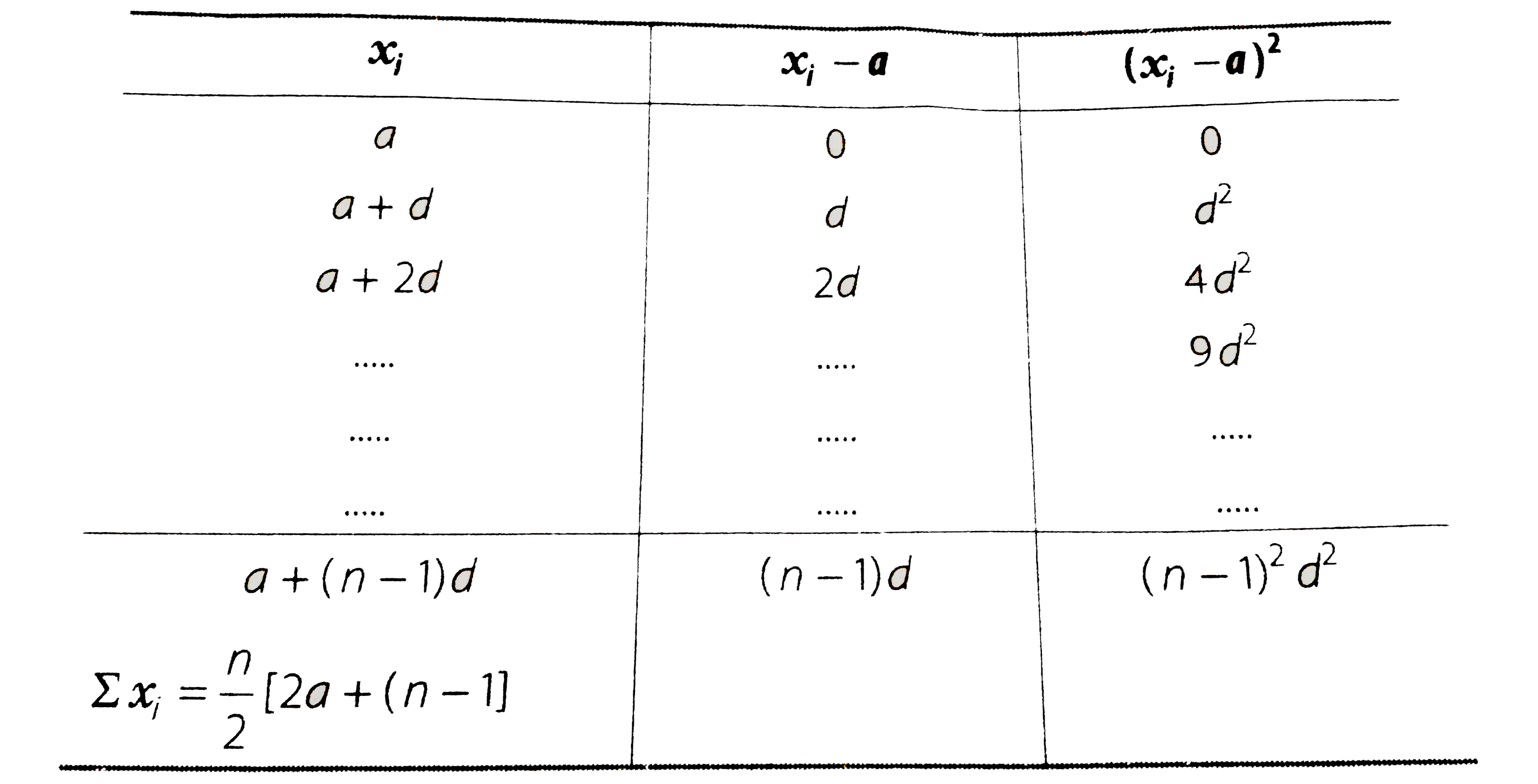Let Sn denote the sum of n terms of an AP whose first term is a. If common difference d is given by d=Sn−kSn−1+Sn−2 , then k is :
To solve the problem, we need to find the value of k in the equation given for the common difference d of an arithmetic progression (AP). The equation is:
d=Sn−kSn−1+Sn−2
where Sn is the sum of the first n terms of the AP.
Step 1: Write the formula for the sum of the first n terms of an AP
The sum of the first n terms of an arithmetic progression can be expressed as:
Sn=n2(2a+(n−1)d)
where a is the first term and d is the common difference.
Step 2: Write the formulas for Sn−1 and Sn−2
Using the same formula, we can write:
Sn−1=n−12(2a+(n−2)d)
Sn−2=n−22(2a+(n−3)d)
Step 3: Substitute Sn, Sn−1, and Sn−2 into the equation for d
Now, we substitute these expressions into the equation for d:
d=Sn−kSn−1+Sn−2
Substituting the values, we get:
d=n2(2a+(n−1)d)−k⋅n−12(2a+(n−2)d)+n−22(2a+(n−3)d)
Step 4: Simplify the equation
We can simplify this equation step by step. First, let's distribute the terms:
1. For Sn:
Sn=n2(2a+(n−1)d)
2. For −kSn−1:
−kSn−1=−k⋅n−12(2a+(n−2)d)
3. For Sn−2:
Sn−2=n−22(2a+(n−3)d)
Combining these, we need to equate the coefficients of d on both sides of the equation.
Step 5: Equate coefficients
After simplification, we will find that the coefficients of d must match on both sides of the equation. This will lead us to a linear equation in terms of k.
Step 6: Solve for k
After equating and simplifying, we will find that:
k=2
Final Answer
Thus, the value of k is:
2
The sum of the first n terms of an arithmetic progression can be expressed as:
Using the same formula, we can write:
Now, we substitute these expressions into the equation for d:
We can simplify this equation step by step. First, let's distribute the terms:
Sn=n2(2a+(n−1)d)
−kSn−1=−k⋅n−12(2a+(n−2)d)
Sn−2=n−22(2a+(n−3)d)
After simplification, we will find that the coefficients of d must match on both sides of the equation. This will lead us to a linear equation in terms of k.
After equating and simplifying, we will find that:
Thus, the value of k is:
Topper's Solved these Questions
Similar Questions
Find the mean of first n terms of an A.P. whose first term is a and common difference is d.
View SolutionIf Sn denote the sum to n terms of an A.P. whose
first term is a and common differnece is d , then
Sn−2Sn−1+Sn−2 is equal to
View SolutionIf Sn denotes the sum of n terms of an A.P. whose common difference is d and first term is a, find Sn−2Sn−1+Sn−2
View SolutionIf the sum of n terms of an A.P. is Sn=3n2+5n . Write its common difference.
View SolutionThe sum of first n terms of an A.P. is 5n2+4n, its common difference is :
View SolutionIf Sn denote the sum of n terms of an A.P. with first term a and common difference d such that SxSkx is independent of x , then (a) d=a (b) d=2a (c) a=2d (d) d=−a
View SolutionDetermin mean and standard deviation of first n terms of an AP whose first term is a and common difference is d.

View SolutionFind the mean and standard deviation of first n terms of an A.P. whose first term is a and common difference is d.
View SolutionFind the rth term of an AP sum of whose first n terms is 2n+3n2.
View SolutionWrite the nth term of an A.P. the sum of whose n terms is Sn .
View Solution
